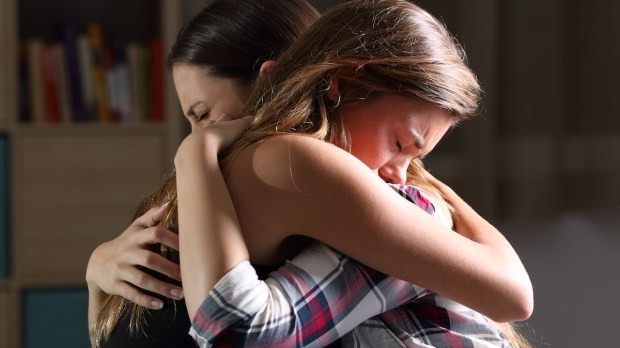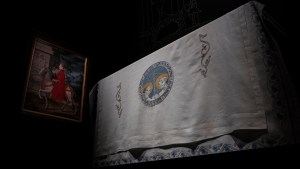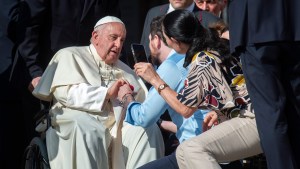This is the final part of a series. Read the other parts here: Part 1, Part 2, Part 3.
It was New York Times journalist Thomas L. Friedman who coined the phrase, “God always forgives. Man often forgives. Nature never forgives.”
Forgiveness is at the heart of what it means to be a Christian. Not only do we seek forgiveness; we are expected to grant it as well.
It should be clear every time we pray the Lord’s Prayer: “Forgive us our trespasses as we forgive those who trespass against us.”
Christ taught that being forgiven is very much tied up with how we forgive others. Just take a look at the Parable of the Unmerciful Servant in Matthew 18:23-31.
So if we want to be faithful, we must move from Friedman’s “Man often forgives” to “God always forgives.” After all, we say we are trying to be more Christlike. For many Christians, that is a goal of our Lenten discipline.
Obviously, there are offenses that seem impossible to forgive, such as when someone kills a loved one. We are impressed when we hear of someone forgiving such an offense, such as what happened in 2015 when a gunman took the lives of nine people at Emanuel African Methodist Episcopal Church in Charleston, South Carolina. One by one, relatives of those slain stood up in court and told the young man, “I forgive you.”
How can an invader be forgiven?
This Lent, we seem to be inundated with news from around the world of conflicts pitting neighbors against each other, of wars tearing apart countries, of suffering inflicted on the innocent. From Ukraine, there are ample examples of atrocities that seem quite unforgivable.
And yet, Ukraine is a nation that is more than 80% Christian. When, God willing, the guns fall silent, many people will be faced with questions such as “Can we forgive Russia for invading us? Can I forgive the soldiers who tortured and killed my son, or who raped my daughter?”
Asked about these prospects, the head of the Ukrainian Greek Catholic Church reflected on how Ukrainians might approach forgiveness. It’s a very real thing for his countrymen, and it’s worth considering, since His Beatitude Sviatoslav Shevchuk has determined that his Church will be very involved in healing the wounds of war. Experts have shown that forgiveness is an important part of healing.
“Reconciliation first of all comes from your personal reconciliation with God,” said His Beatitude Sviatoslav in an interview with Aleteia. “I forgive you not because I’m so brave, I’m so good. No, I forgive you because I was forgiven before. So in order to be able to forgive, you have to experience forgiveness.”
The patriarch pointed out that St. Paul the Apostle considered himself to be a messenger of reconciliation. “And he started with a call to be reconciled with God. That is his message that he was bringing as the first and very fundamental one to those to whom he was preaching the Gospel of Jesus Christ: Beloved, please be reconciled with God,” His Beatitude said.
Whatever an eventual peace agreement between Ukraine and Russia looks like, what is needed at the basis of it all is a “reconciliation of hearts” and the “re-establishment and healing of human relationships,” Sviatoslav says. “That is not an easy process.”
It is connected to overcoming the trauma of war, which an overwhelming portion of the population has experienced and which “probably will mark us for decades in the future.”
Reconciliation and forgiveness between nations is a long process of healing, he said, which involves opening a dialogue of truth, investigating war crimes, and providing justice to victims.
“We have to repair the damage we have done to each other,” he said. “Only then, as a fruit of healing, the restoration [of human relationships], can we speak about an authentic forgiveness.”
“We have to pray; we have to work hard,” he said. “I think that the very notion of forgiveness and reconciliation is something deeply and authentically Christian. We as Christians cannot miss this important message of the Apostle Paul to be a people of peace and reconciliation with God and with our neighbors.”
Lent is a time of “spiritual warfare,” and as we seek forgiveness for our failings, we are called to forgive those who have failed us and offended us. It might be helpful to recall that those we are called to forgive are also engaged in spiritual battles of their own.
Watch the whole Aleteia interview with His Beatitude Sviatoslav
Read previous parts of the series:
Part 1 here, on prayer as a survival mechanism
Part 2 here, on sharing words of hope
Part 3 here, on turning to the Eucharist and confession



